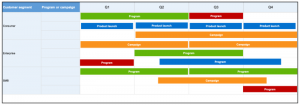Over the past couple of weeks, I’ve had friends, colleagues, clients calling and to talk about the trials and tribulations of working from home. We’ve shared funny stories, frustrations, and swapped hints and tricks.
Some people have been asking me for hints/tricks about working from home, knowing that I have had a home office for the past 20+ years. I hardly feel qualified, since typically on Monday mornings I jump on an airplane to go to a client location. Prior to the “Shelter In Place” rules in California (supplemented by common sense and good judgment), I normally work from my home office 3-5 days a month. Now, like everyone else, my home office is my full time office–at least for some time.
But, I have learned some things. Here are some things I’ve learned and am learning, I’m interested in your ideas:
- Establish a routine. Somehow, people feel that working from home is different than working in the office. But, as you think about it, we have routines in the office, we need to establish routines working from home. Current circumstances are making things different, but it’s important to have routines that help us stay focused and productive. For me, my work at home routine has always been starting my day very early. I work the global time zones in working with my clients and prospecting. I’ve learned I’m most productive getting up about 4:30am, doing 15 minutes of light exercises, 5 minutes of meditation, taking a shower and shaving. Usually, I’m sitting in my office at about 5:15-5:30. I block my time. Certain time for email, time for prospecting, research/client work and so forth. Very importantly, I schedule breaks through the day.
- Be attentive to “distractions.” It’s so easy to be distracted when you work from home and aren’t used to it. Many of us have children and spouses who are learning to do the same thing. There are things around the house that might distract us. Particularly, in these times, it’s so easy to get distracted. One of the biggest lessons I’ve learned in working from home is that when I am in my “office” I’m at work and I do work. When I am in a different space, I’m not “at work.” Whatever your “office” space is, when you are in your office your focus should be only about work. If it’s a separate room, a closet a corner of the living room, turn off non work distractions when you are in the “office.”
- Know when to turn “work” off. Working from an office, it’s easy to turn work off when we leave the offices (though in the past 10 years, people are increasingly doing email from home and scheduling conference calls in the evening. These past few weeks, when I talk to people, they are tempted to always be working, since their work place is also where they live. They are getting exhausted and worn out. It’s critical to turn work off, to exercise, spend time with your family, call friends, read, even watch TV. We, each, need time to refresh and re-energize ourselves. Related to the previous point, if you have a place at home that you call your “office,” when you are in the office, work, when you leave the office, stop working and do something else.
- Related to the previous point, don’t eat at your desk. To be honest, I have trouble complying with this. When I am in client offices, I often grab a sandwich and eat at my desk, I notice others doing the same. I sometimes transfer that to my home office. Somehow, I think I’m more productive. Some years ago, I owned a software startup in Paris. In my first week working with the team, I did my normal habit of eating lunch at my desk. My CFO gently told me that wasn’t the way things were done. I learned the entire team took a lunch break together. We would go into the conference room, have lunch, talk, share stories. It was a huge opportunity to connect with others, to refresh. And when we went back to our desks, we were more focused and productive. When you take time for lunch, go to your kitchen or dining room, have lunch. Perhaps call a colleague and talk to her. Maybe get your colleagues together to share lunch and stories over a Zoom call.
- Get your sleep. Related to the previous points, it’s so easy to forget to take care of ourselves–eating well, exercising, and getting sleep. Also, make sure you are getting exercise, whether it’s a few pushups, lunges, squats, a bike ride, or a run. I have a set of kettlebells in my office. Every 90 minutes, I take 5 minutes to do something with them.
- Stay professional. In our offices, we behave professionally. Perhaps, how we dress, how we speak, how we work–respecting those around us, and doing the things we know produce results. Many people, working from home, forget that they need to be just as professional as they are in the office. Things as simple as dressing the same way, engaging people the same way (though perhaps by phone or video calls) help shape your mindset and keep you focused on being productive. Your colleagues and customers expect you to be as professional from home as you are in the offices.
- Learn how to use the technology. Technology has always been important to my effectiveness, both working from a home office and as I travel. Over the past few weeks, I can’t believe how much time has been wasted by bad video conferencing connections or not knowing how to use the tools. Technology helps you become enormously productive and impactful, both from the home and office, but we have to use it effectively.
- Stay connected! By this, I don’t mean through the technology or social networking, but stay connected with your people, your colleagues, and customers. The biggest problem people who are new to working from home face, is the feeling and reality of being isolated, separated, and alone. When we are in an office, we feel more connected. There’s so much informal communication that happens, whether at lunch, coffee breaks or just throughout the day. That disappears when we work from home. So we have to consciously look for the surrogates for that informal communication and engagement. Managers should reach out and talk to their people every day, even if it’s just a few minutes. There’s great value in work-group conference/video calls to keep connected with our colleagues. And each of these calls don’t have to be just about business, there should be time for social exchange. For example, I sat in a call with a team the other day. The manager asked each person to share something funny that happened to them in the past week. Each person shared a brief story, we all laughed and had fun.
- Don’t forget the good habits you develop working from home when you go back to the real office.
What are you learning about working from home? What works, what doesn’t?
Business & Finance Articles on Business 2 Community
(19)






